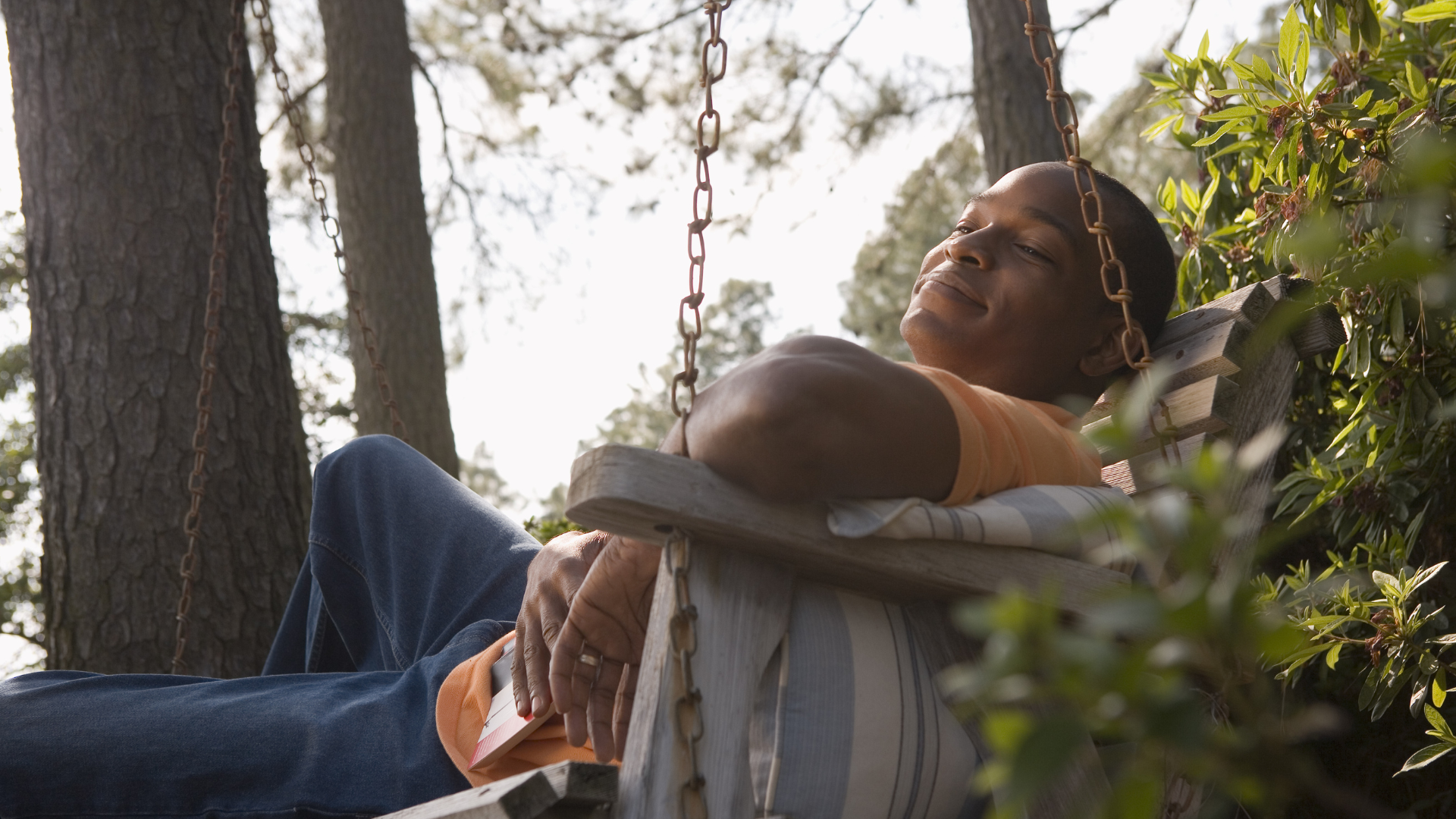
5 Reasons to Rest
“Almost everything will work again if you unplug it for a few minutes, including you.”
~ Anne Lamott
This was my sign that it was time for a rest.
In May, I took my first holiday in 10 months. I was so depleted. I had no idea how far I’d slipped in my quest to check off my goals. I needed to unplug.
When I was in school, I was more “disciplined” about unplugging, taking breaks. My university program was on-going, meaning no summer or winter breaks. Each course was 8 or 12 weeks long and I’d take 1 or 2 overlapping courses at a time.
I’d give myself a week off every 3 months. Once, I took 2 weeks off. My university would not allow students to take more than two weeks off at a time. It didn’t take long to figure out why. Once I started to feel good…having a rest…it was hard to find motivation to go on…knowing how bad I was going to feel by the end of the next 12-week run.
I graduated two years ago, and now that I’m mostly recovered, I realize what a lifeline those breaks were for me. Not only was I in school, I was running two companies. So, while I didn’t get to completely shut off, it seemed like there was always a reprieve in the workload.
Somehow, I got off track this past year. It wasn’t that I didn’t have any breaks planned. They just kept falling through. And I just kept replacing the time with work…instead of rest.
Some of the cause was momentum. TBPHD, as I call this spirit-inspired venture internally, was really taking off! Ideas were flowing. Pieces were coming together. Opportunities kept coming my way. My other business was growing, too. So, I just kept going.
Some of the cause was me…and this crazy, high-octane, fast-paced life that we entrepreneurs get accustomed to. We just.keep.going. Others stop. We don’t.
Some of it’s necessary. Some of it’s not. Even a high-performance race car must make a pit stop. If a machine must stop occasionally, why do we humans think we don’t need to?
I can tell you, we do need to stop, to unplug, to take a break, to rest. If we don’t, there are serious negative consequences to our health, our spirit, our families, and our social enterprise.
When it comes to our social enterprise, it’s not only profit that can be hindered, but people, too: your beneficiaries, your students, your employees, and your trainees. The whole reason you’re even in business to begin with can suffer because of your lack of rest.
Sometimes, many times, we need permission to rest. I’m giving it to you now! Rest, my friend. Take a rest.
My friend, Graham Cooke, says, “Rest is your weapon.” I couldn’t agree more! Rest is truly your best defense and offense.
Defense, in the context of rest, protects you from things that come at you, enabling you to have a better response. Remember, E + R = O from Episode 1 of the podcast? Event + Response = Outcome. Your response is the only thing you can control.
Offense, in the context of rest, equips you to not only hear your spirit, and what’s best for you but empowers you to take inspired action, making a difference in the lives of others. Whether that’s training people with life and job skills, educating children outside of school, unifying people through sports, or giving access to healthcare. These are MAJOR global issues you are tackling. You need rest to be at your best!

Here are the benefits of rest:
You will….
- Feel better.
- Why? It raises your vibe. Everything has a frequency; literally, a vibration.
- Even if you love your social mission and have an amazing team, there’s a good chance you’re investing a lot of your time and energy in people, which requires energy. Likely, you’re doing tasks that aren’t your natural gifting. It causes fatigue. It lowers your vibe. Resting restores you and increases your vibe so you can continue to be the joyful, positive influence your team needs.
- Use the other side of your brain. Even if you thrive in the analytical and methodical left brain, you do have a creative, artistic right brain that needs to function. Alternatively, if you’re super creative, the right side of your brain desires some order in your life. Rest, being away from the same thing, helps you engage the other side.
- Brain fog is real. When we just keep going, we add more and more and more. Our brain literally gets inflamed. It swells. Rest literally settles the chemicals in our brains and we feel better.
- Being away from the norm scrambles your brain! Rest fills it with new sights and sounds and feelings. It raises your vibe and makes you feel better.
- Hear your spirit better.
- Rest is a major part of every spiritual practice I know.
- God created the Sabbath, a day of rest. Jesus rested and even went onto the mountain away from the crowds. The experience of Shiva is about resting the mind. Buddhism values life and prioritizes rest as caring for your body and mind.
- Short of being atheist, if you believe in any higher power, then rest is the foundation of your belief system! Why is it so easy for us to skip over this and value performance above rest?
- Rest slows the sparks in your brain so you have more clarity on what’s important and on the possibilities we can’t imagine in our own thoughts.
- Journaling helps - a written format- for when we can’t hear our spirit. I talk about this more in Episode 4. But, sometimes we need more physical separation from our everyday environment.
- Rest helps us break out of unhealthy patterns. What is no longer serving you? What have you been doing and how have you been “being” that will not get you where you want to go?
- Removes some of the urgency. We can all get stuck in the "tyranny of the urgent." Rest helps us slow down and see more clearly what seemed urgent, may not be that important after all.
- Perform better.
- Rest is necessary for our brains and our bodies.
- When we keep going without rest, we put stress on our bodies.
- Stress can lead to a lack of sleep. Lack of sleep can lead to more stress. The combo of stress and sleeplessness leads to an increased risk of a stroke. We can think that we’re too young for that to happen to us. But, at what point do we slow down? We start living this lifestyle and it becomes normal. We master it. It’s super easy to just slide into your 50s and 60s running this pace. Then, you’re really at risk.
- Our body is constantly seeking equilibrium. It counterbalances to offset the strain we put on it.
- When we take time to rest, our body has time to level out, find equilibrium, and that enhances our performance.
- Give to others better.
- If every time you stopped for petrol, you only filled your tank ¼ full, you’d constantly be running on empty.
- You’d never get anywhere, nor would you have anything extra for anyone else.
- By resting, by filling our tanks fully, we can go farther, keep going longer, and help more people.

What may surprise you about rest:
- There’s never a good time.
- Every obstacle you can imagine may come at you.
- You must make the time and honor yourself. Everyone will win in the end.
- It takes time to settle into rest.
- If you’re taking a day of rest, it can take a few hours.
- If you’re taking a holiday, it often takes about 3 days before you feel yourself begin to separate and let it go. It’s a very gradual process.
- It takes time to ramp up again.
- But it will happen. You’ll be back up to full speed when your body, mind, and spirit are ready. Don't worry. You haven’t “lost it.”
What “rest” looks like:
- One day off.
- Screen-fatigue is real! On Sundays, I leave my computer off and rarely look at my phone. If you get energy by being around people, you may need to look at your phone for details about meeting up with them. But, try to eliminate mindless scrolling or major work for one day each week. The next day, it may take an hour or so to get re-oriented to your projects, but you’ll be exponentially more efficient.
- Long weekend (3 days off in a row).
- I try to do this once every quarter, and I plan it into my goals.
- Maybe it’s a trip home to visit your family or a getaway with friends or your significant other. Again, the first few hours or maybe even half or a whole day, you’ll feel a drawn to your phone or computer. Each kilometer of physical distance creates more emotional distance.
- Full-on holiday (7-10 days off in a row).
- My European friends are much better at this than I am! Some countries require employees to have a mandatory 6 weeks of holiday. It’s not like that in America. I’ve always worked for myself, so I was never required to take time off. I must give employees time off, but I don’t have to take it myself.
- The 4 years that I was in school this last time, I did this 3-4 times a year, taking 7 days off in a row. It wasn’t always like a lay-around and do nothing holiday, but it was a break from school and everyday work.
- Having gone 10 months doing this only once, I can tell you for certain that doing this at least twice a year is a great starting point.
- It doesn’t have to be a lavish, costly holiday. You can go visit a friend who has a social enterprise in another village and help them out for a few days. Just get a change of scenery and get some new stuff in your brain. It’s enough for a perspective shift.
- It takes about 3 days for me to settle in before I can just leave work behind.
- It takes about 2 days to recover from jetlag and travel. Even Rick Steves, the travel show host, and guidebook author says, “Travel is exhausting!”
- Depending on the type of trip, it takes at least 3 more days before I’m back up to full capacity.
- There were days on this holiday when I wondered if I’d ever be able to “crank the tractor” again…meaning, get started, get back to work, get back up to speed. But I did. I always do. And so will you.

Your challenge: Carve out time for a rest.
- Start short. Start with 1 day a week where you minimize your screen time.
- If you’re of a servant mindset and simply can’t bear the idea of taking time for yourself, then volunteer to help someone else. The comradery of social enterprise makes the world small. There’s another social entrepreneur who would value your help, your listening ear, your outside perspective, or your hands for a shovel.
- Do you have a bestie or significant other with a dream to see or experience a new place? Help them make their dream come true and go with them.
- What about you? What about your dreams? It’s a big world! Surely, there is something outside of your social enterprise that interests you. If you don’t dream big…and make them come true, how can you inspire your beneficiaries to dream…and do…life differently.
- Your rest can be someone else’s inspiration.
- Your rest is your weapon- your best defense and offense.
- Pick it up and use it, my friend!
While this post is more about longer rest periods, I talk about how to create space for shorter rest periods in Episode 4 of the Avant-garde Entrepreneur Podcast. I call it scheduling appointments with yourself.


